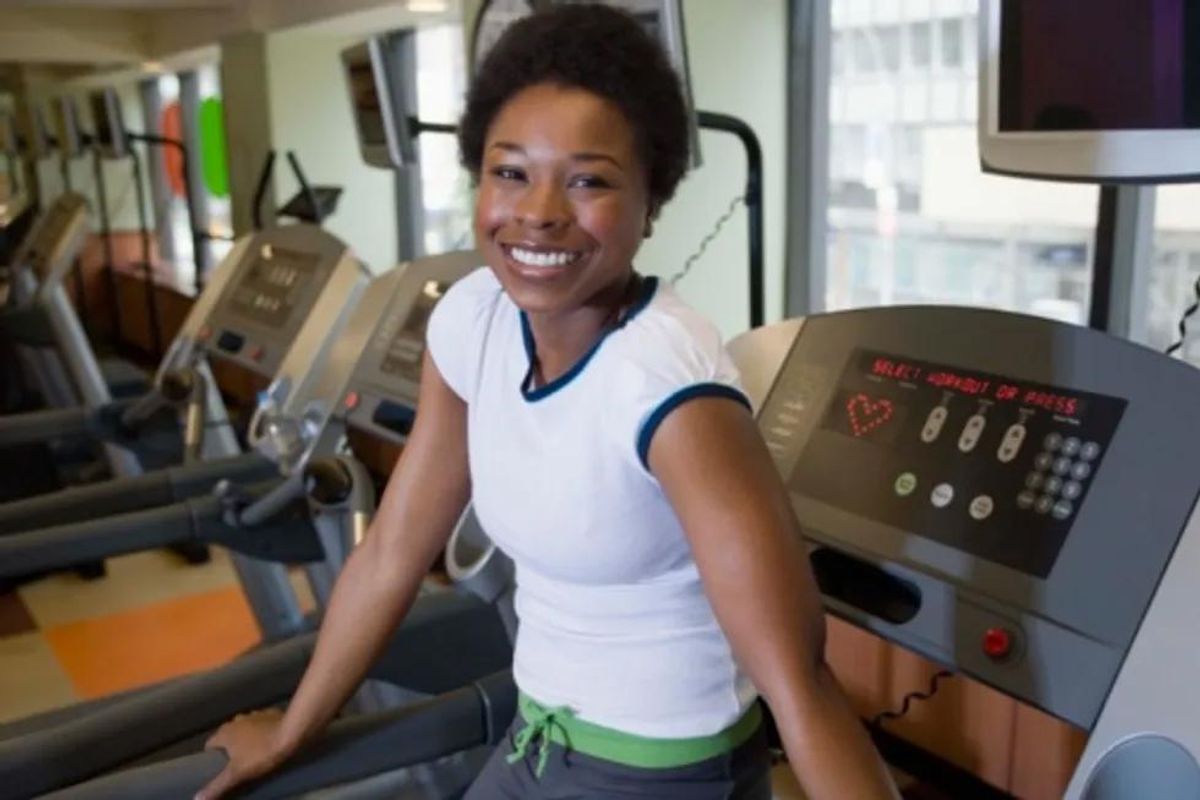
Motivate Yourself Past Exercise Blocks
6 tips for getting back in the game.
Sep 14, 2009
Jul 07, 2021
Self-Care & Mental Health
Learn about our editorial policies

It all seemed to be going so well: you got up an hour early to go for a run or get to an exercise class before your workday started. Or maybe you brought a stuffed gym bag to your job so you could hit the fitness center at day's end.
These traditional plans for getting the physical activity we all need can work very well, month in and month out, for some people. For the rest of us, life can mess up our exercise routines, big-time. An injury, illness, children's schedules, demands at work, elders' needs, boredom, fatigue, a tightened budget—all can contribute to blocking our efforts to become, and remain, physically active.
Once that exercise block develops, finding the motivation to get past it is tough.
Yet, what if the problem isn't finding a bigger carrot (or stick)—what many people mistakenly call "motivation"—to force you back into exercising? What if the problem begins with how we think about the role of physical activity in our lives?
"Exercise has been a commodity instead of a process," says Michelle Segar, PhD, MPH, a psychologist who's conducted studies on motivation and physical activity at the Institute for Research on Women and Gender at the University of Michigan in Ann Arbor, a philosophy of exercise for midlife women. The best plan, she says, begins with "deconstructing what exercise means … and then repackaging and re-creating it to what you, the individual, needs."
When you do that, Dr. Segar adds, you make physical activity fit your personality and life context. "It's very freeing," she says.
It also helps explain why her research shows that many women's main motivation for exercising—wanting to lose weight or change body shape—is a poor one. Her study found that women who cited those reasons as their motivation exercised about 40 percent less than women who were physically active to increase their sense of well-being or reduce stress or because they enjoyed the activity.
Facing your block
An important part of getting unblocked about exercise involves getting in touch with why you want to be physically active in the first place.
"If your reason is a 'should,' that's a recipe for not exercising," says Dr. Segar. To become more active or unblocked, "exercise has to be a nurturing activity and be about taking care of yourself…which often isn't going to the gym to get 40 minutes on the stair machine."
You may be thinking, "Yes, but my exercise block can't go away because of _____ (fill in the blank)." Fair enough. There are some events that pose significant challenges to motivation, such as illness, a loved one's death or a job or relationship loss.
In addition, there are mental roadblocks, such as feeling self-conscious about how you look when exercising or fearing injury. Overweight and obese women are more likely to limit themselves with these barriers than other women, according to research from Temple University in Philadelphia.
When a block arises, "the first step is just to accept that it's happened, recognize that you can't do anything about what has been, but you can do something about what happens in the future," says Amy S. Welch, PhD, an exercise psychologist and assistant professor in the Department of Kinesiology at Iowa State University in Ames.
That doesn't mean you should just grit your teeth and push yourself to run three times a week.
"You need to take a look at what your current situation is and redo your exercise goals with respect to what is currently realistic," Dr. Welch says.
Evaluate what you do and don't have control over, she recommends. "Don't focus on the past. Focus on the here-and-now."
Block-busting advice
These suggestions can help motivate you past an exercise block:
And don't think that you must join a gym or an exercise class to achieve motivation. Those external forces do little to sustain long-term physical activity for life.
"Saying I'm not motivated" is often a smoke screen for what's really going on—that I'm not motivated to do the type of exercise I think I'm supposed to do, in the way I'm supposed to do it," Dr. Segar contends. "The fitness boom marketed high-intensity aerobics to us, and we've been hit over the head with that…brainwashed to think that only certain things [types of exercise] count."
"You have to create your own physical activity," she says. "Then you're more likely to do it."